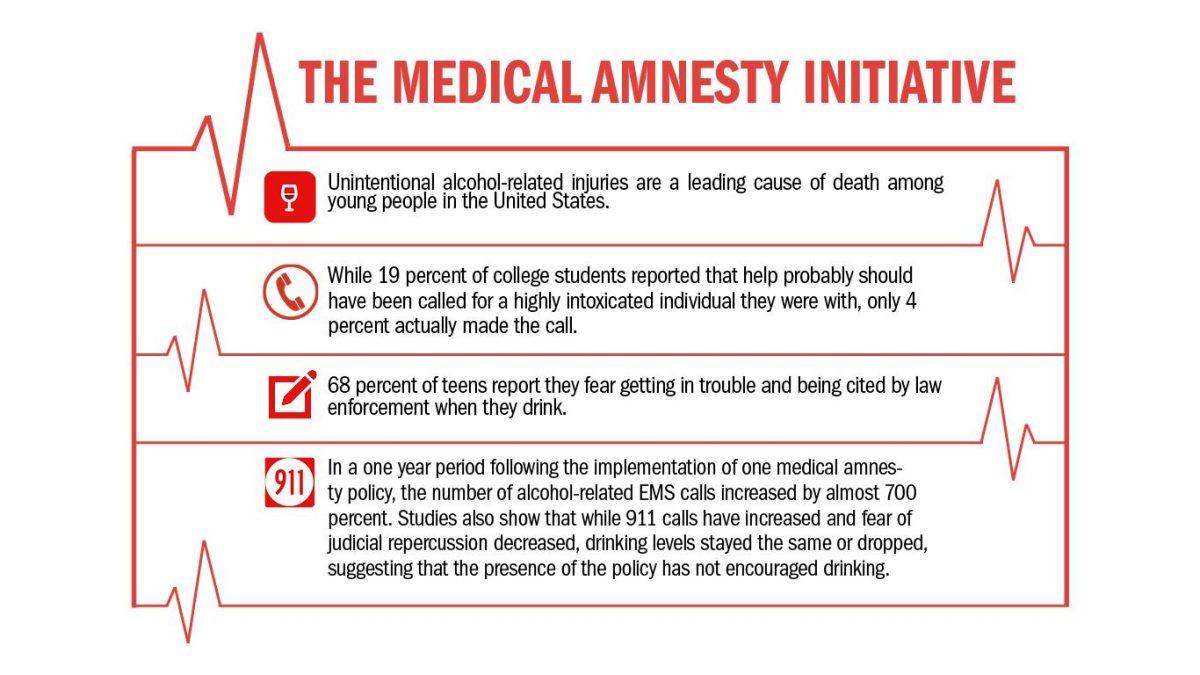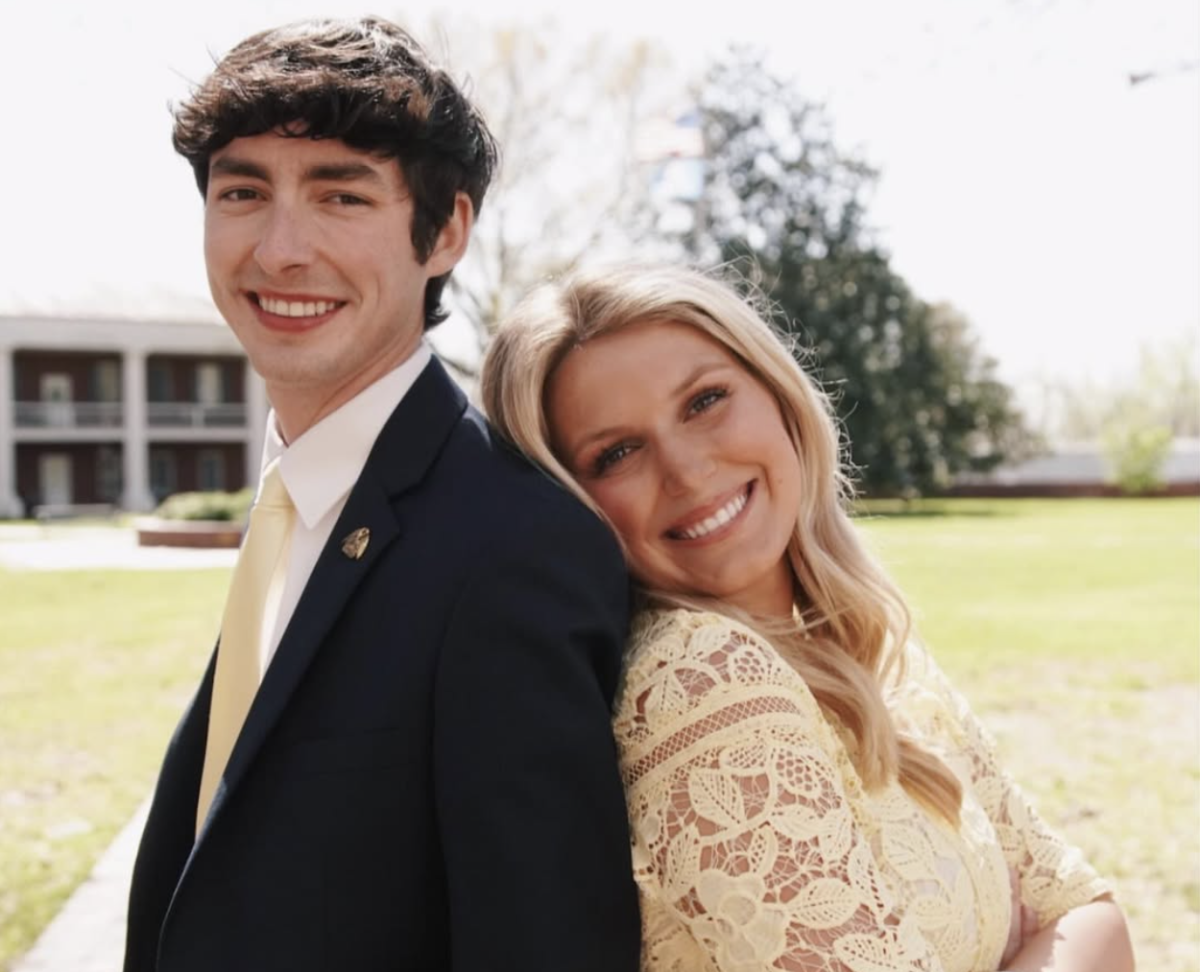University officials and LSU Student Government hope that a new proposed policy for the Code of Student Conduct will help alleviate their fears of repercussion if they get caught in situations dealing with alcohol and/or drugs.
On Sept. 13, the same night as the alleged hazing of Maxwell Gruver that potentially led to his death Sept. 14, a resolution passed through the LSU Student Senate in hopes to avoid similar situations in the future.
The resolution, titled SGR No. 4, is in support of a policy protecting students reporting alcohol and/or drug-related incidents from consequences by the University. It supports the urging of the Code of Student Conduct Review Committee to add the Emergency Response Amnesty Policy, written by SG chief of staff Heather Sullivan, to the University’s Code of Student Conduct.
While unrelated to each other, the resolution’s timely success in the Senate shows the University is committed to safety as a top priority, said co-author of the resolution and College of Humanities and Social Sciences senator Maxwell Martin.
A draft of the policy states its intentions are to “[encourage] students to make responsible decisions and be accountable by providing amnesty in alcohol and drug-related emergencies.”
“[Sullivan] has been working on this for a long time,” said co-author of the resolution and University College Center for Freshman Year senator Austin Grashoff. “When she brought it up [at the SEC Exchange,] she had all this background on it … and we agreed that it would be better to have the students’ voice behind it through Senate.”
According to a Cornell University study, 19 percent of college students reported that help probably should have been called for a highly-intoxicated individual they were with, while only 4 percent actually made the call.
“I started working on this … when Zack Faircloth and Lindsey Landry were still in office,” Sullivan said. “I looked at a lot of different schools, a lot in the SEC, as well as some all across the nation.”
Sullivan said she worked with SG president Jason Badeaux and pulled from other universities with already established medical amnesty policies in writing the proposal. She credits her main sources for the proposal as Tulane University and the University of Georgia.
Badeaux, who Sullivan credits with writing a large majority of the proposal, said he not only looked at Tulane and UGA’s policies, but many other universities and adapted the parts he liked for his own proposal.
Through Sullivan’s research, she uncovered Louisiana already had a state law on medical amnesty in effect since 2014, but the University did not have an official policy on the subject.
“It is already our practice,” said Dean of Students Mari Fuentes-Martin. “We want to put it in writing so students feel more confident that it’ll be followed and they will be supported.”
While the University has historically exercised the practice of medical amnesty, Sullivan said her research showed that the University is one of the only top-tier universities to not have a policy when a state law is already in place.
Sullivan worked with many departments around campus such as the Office of the Dean of Students, Student Advocacy and Accountability and LSUPD. While LSUPD cannot legally support the policy in the University’s Code of Student Conduct, Sullivan said the department was supportive of the idea of having the policy in place.
“I really hope that this does allow students not to be afraid to pick up a phone and call to get help,” Sullivan said. “I hope that it helps save student lives and keep students from getting into situations that they shouldn’t be in.”
While the resolution has passed through the Senate and the policy is currently being analyzed by the University’s legal department, the policy will not be added to the Code of Student Conduct for a few months, Fuentes-Martin said.
The medical amnesty policy will join the University’s previous policy on amnesty regarding reports of Title IX and sexual misconduct violations already implemented in the Code of Student Conduct.
“One of the big proposals that [Vice President for Student Affairs Kurt Keppler] wants to support is more bystander training,” Fuentes-Martin said. “Wanting to implement a bystander initiative, I think, would help people feel supported to step up and interrupt any situation that could be harmful.”
Part of the bystander initiative is Tiger BITes, the University’s bystander intervention training. According to its website, “intervening has the ability to impact/reduce many high-risk activities in the community such as: sexual violence, high-risk drinking, hazing, etc.” Its next training session is Oct. 4.
Another aspect to the initiative is LSU Cares, through Student Advocacy and Accountability. Through the program, students are able to report potential LSU Code of Student Conduct violations, concerns regarding sexual misconduct and hazing, concerns surrounding acts of bias or discrimination and more situations regarding students’ concern, according to their website.
“We throw all of these ideas out there … but if the student who knows doesn’t make the initial response, it’s hard,” Keppler said. “I think one of the things we want to do is make sure that the average LSU students know they can help.”
Sullivan said the current proposal of the policy covers students calling for themselves, students for other students, as well as student organizations. While the coincidental timing of Student Government passing the supporting resolution is another step for the policy, the research started long before Gruver’s death, Sullivan said.
“There’s an innate problem if the Code of Student Conduct is regulating students away from responsible behavior,” Badeaux said. “[Students] can’t continue to have this choice between safety and violating the Code of Student Conduct.”
New medical amnesty resolution urges addition to Code of Student Conduct
By CJ Carver
September 27, 2017
Medical amnesty initiative
More to Discover









